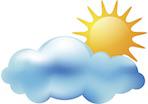'Wobbles, Tilts and Time Lords: Understanding the Climate of the Past', Prof. Kate Darling. After the meeting, our quiz team was challenged by the team from Penicuik Rotary Club
Wed, Mar 9th 2016 at 7:00 pm - 8:30 pm
.

This was an interesting presentation into an area of science about which few of the members attending had any previous knowledge. Accordingly it was an 'eye-opener' into climate change research.
An extract from Prof. Kate Darling's webpage (on University of Edinburgh, School of Geosciences website) states:
"I am a multi-disciplinary scientist working on the diversity and phylogeography of foraminifera to improve the resolution and understanding of palaeoceanographic proxies and the microfossil record. Researchers use foraminiferal fossil shells to reconstruct ocean circulation and climate in the past...."
Kate used more simple language in her presentation saying that tiny fossils indicate how climate has changed in the past. A simple statement but one which led into more and more complex, yet clearly expressed, explanations.
The fundamental question is - How do we know climate is changing? A graph can prove that it is more than normal cyclical changes and this is based on Institutional Records, Historical Records and Short & Long Term Archives. For example - tree rings; giant clams; small shells; corals; Stalactites/Stalagmites; peat cores - the history of some of the last of these going back cica 10,000 years.
Howecer, ice cores from Artic and Antartic regions can indicate certain factors as far back as 108,000 years (Artic) and 800,000 years (Antartic).
Kate then talked about 'foraminfers' which are defined as 'single-celled planktonic animals with a perforated chalky shell through which slender protrusions of protoplasm extend. Most kinds are marine, and when they die, their shells form thick ocean-floor sediments.'
The sediment is collected in drilled cores and the H20O18 isotope is analysed. Theories about climate change result from their study. As Kate explained: The Present is key to the Past.
Kate concluded by explaining that, whilst today's global sea levels have been higher in the past, today's levels of carbon have never been higher - CO2 spreads warming throughout the planet.
Following a short Q&A session, Naveen Ramdeehul gave the Club's vote of thanks to our speaker.
....and the third round of the District Quiz - how did that go?
It was a very close result: Currie Balerno 20 : Penicuik 21. Congratulations to Penicuik Rotary Club.
'What We Do' Main Pages:
Serving the Communities of Ratho, Kirknewton, Balerno, Currie, Juniper Green, Baberton, Colinton and Wester Hailes
moreRead about our Club initiatives
moreRead about our Club and where we are....
moreThis page features recent submissions to the press about our Club. Please note that the press editors may have made changes to the copy used for final publication
more